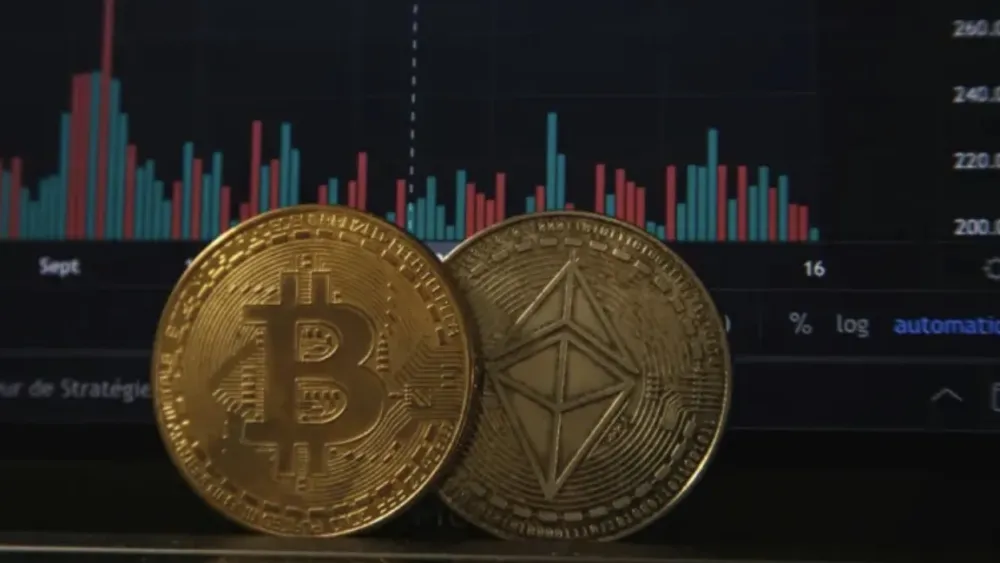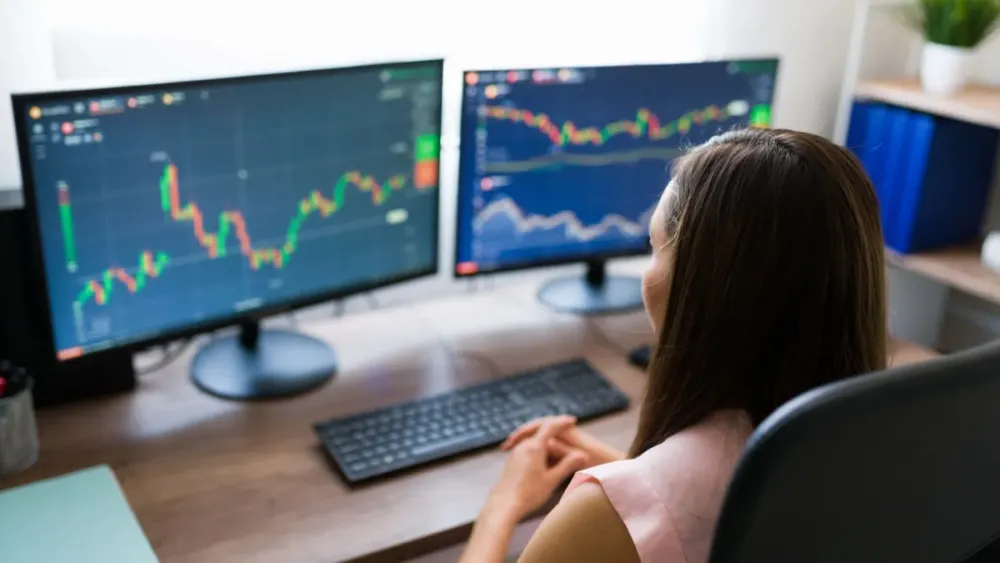
10 best ways to invest in 2025
Analysts are not too worried about the impact of US tariffs on Asian investments.
Hong Kong investors are likely to weigh another round of trade wars between the world’s biggest economies, Asian currencies’ potential rally, and Hong Kong and China’s strong tech sectors in what is shaping up to be a “year of volatility,” analysts told Hong Kong Business.
Despite the expected trade uncertainty — fanned by incoming US President-elect Donald Trump’s threat to raise tariffs against China, Canada, and Mexico — most analysts are not too bothered by Asia’s chances this time around.
“We’re tempted to be pretty sanguine about the impact of tariffs,” Mel Siew, a portfolio manager at Muzinich & Co., said in an interview.
“The Asian region has got very strong fundamentals. You can make a case that there should be a pretty limited impact as well this time around, despite the initial reaction and volatility.”
Asian equities and currencies would probably perform well, whilst Hong Kong and China’s tech space offer attractive investment opportunities, according to the Hong Kong investors and analysts.
Here are some investment ideas for the next 12 months.
1: Sell Li & Fung and peers
Despite their more upbeat outlook for the US-China trade situation, analysts still cautioned against companies in sectors that may be caught between the trade wars.
“Li & Fung is a clear sell,” Daniel Tan, a portfolio manager at Grasshopper Asset Management, told Hong Kong Business in an interview.
The Hong Kong-based supply chain company endured a sell-off at the height of the US-China trade wars in 2018 and went private in 2020. “I will have that positioning preference for similar quality names in a similar industry,” he added.
Investors should shun sectors sensitive to international trade, Ross Maxwell, global strategy operations lead for online trading platform VT Markets, told Hong Kong Business in an emailed reply to questions.
“This will be more sensitive as Hong Kong draws closer to mainland China and becomes more aligned with its economy,” he added.
2: Lucrative HK tech sector
Venture capitalists targeting tech development and unicorns in Hong Kong and the Greater Bay Area offer attractive investment opportunities in 2025, Maxwell said.
He cited Hong Kong government efforts to develop Cyberport and Science Park as it tries to become a fintech hub. “As such, fintech startups or established companies that are looking towards digital transformation can offer potential lucrative investment opportunities.”
Tech startups that focus on artificial intelligence (AI) and biotechnology also offer good opportunities. So do companies in digital payments, blockchain, and cybersecurity.
3: BYD over Tesla; China tech in general
Apart from Hong Kong, China’s tech space is another solid pick. Tan cited China’s electric vehicle (EV) industry, and prefers the stock of car brand BYD over Tesla, which he said is overvalued.
“I don't really like where Tesla is trading,” he said. “EV as a whole has been rallying too much, [and] poised to sell off early next year or throughout the whole year.”
Siew, meanwhile, cited the Chinese tech space for its strong balance sheets. “Because of its small-ticket consumption… [consumers] don’t have the hesitancy to spend,” he said, adding that tech companies have logged strong year-on-year growth.
China had 369 technology unicorns with an average value of $3.8b as of April 2024, the second-biggest in the world, according to data from the World Economic Forum (WEF).
4: Asian currencies are solid
Asian currencies are expected to rally next year. “In the long run, we anticipate an appreciation of Asian currencies, driven by additional stimulus from China, which is likely to draw new capital inflows into the region, along with improving macro fundamentals in ASEAN (Association of Southeast Asian Nations) and India,” said Alfred Mui, managing director and head of Asia Fixed Income Investment Management at HSBC Global Asset Management.
Tan said the currency and bond rallies could extend to emerging markets globally. “On the longer term basis, [we see a] potential for equity rally within emerging markets. Some of the countries that we like are India, China, Colombia, China, Indonesia, [and] the Philippines.”
Mui said Asia’s fixed income markets including currencies are less volatile than those in emerging global markets. “This stability, coupled with an attractive duration-insulated carry, provides essential insulation against rising global market volatility.”
5: Steer clear of the Hong Kong dollar
Since the Hong Kong dollar is pegged to the US dollar, its interest rates generally follow those set by the US Federal Reserve, reducing the flexibility of the Hong Kong Monetary Authority in setting policy rates. This opens it up to risks from global inflationary pressures and rate fluctuations, Maxwell said.
6: Ride the easing cycle with bonds
Trump’s tariff obsession will elicit some knee-jerk responses in the investment space in the early days of his second term. Overall, Asian investment-grade bonds will see little impact, just like in 2018, Siew said.
The rate-easing cycle by central banks across the globe is expected to continue next year, and bonds stand to benefit. When interest rates fall, bonds are more profitable than other investments, so bondholders can sell them at a premium.
The 20-year bonds look particularly promising, and were giving 4.7% in returns in late November, Tan said.
“The front end of the curve, short-dated bonds, look best-placed, particularly in an Asian context versus the US,” Siew said. “That is where we see some pickup in Asian credit spreads over the US.”
High-coupon bonds can also be appealing. “High-coupon bonds will surprise people in terms of returns they can generate over other investments, particularly, say, longer maturity bonds and tenor bonds that have high headline yields but generate low income because they have low coupons,” he added.
7: Never too late to turn green
Exchange-traded funds dedicated to sustainable practices, green bonds, and companies investing in renewable energy infrastructure in Asia may also offer attractive investment opportunities.
“Global efforts to combat climate change will offer opportunities in the renewable energy sector and a focus on a company’s environmental and social criteria can give clues for long-term returns,” Maxwell said.
The shift toward cleaner energy and decarbonization through investment in solar, wind, and hydrogen would continue to be a predominant theme in the second half of the decade, he added.
8: Singapore banks a good hiding place
For the truly cautious: Singapore banking stocks may be a good place to hide from the market volatility expected from Trump version 2.0 and shifting expectations about the US Federal Reserve’s next moves.
United Overseas Bank Ltd. (UOB), Oversea-Chinese Banking Corp. Ltd. (OCBC), and Development Bank of Singapore Ltd. (DBS) expect potentially low earnings next year, RHB Bank Berhad said in a November 2024 report. The three banks offer a dividend yield of 5.6% for next year.
Of the three, DBS offers dividend safety given its guidance for a fixed step-up in absolute dividend per share, whilst OCBC and UOB may offer higher dividend per share if earnings in 2025 turn out to be better.
9: Private equity poised for growth
Private equity is poised for a dynamic year, with pent-up demand and strong financing conditions likely to catalyse deal-making, particularly in the US and Europe, said Khai Lin Sng, co-founder and chief investment officer at Alta Alternative Investments Pte. Ltd.
“Growth-oriented investors can look to buyout, growth, and venture strategies, with sectors like software, technology, and services offering attractive opportunities,” she said. “These areas are primed for innovation and expansion, creating significant value for long-term investors.”
On the other hand, investors may need to be cautious in industries facing regulatory uncertainties, such as cryptocurrencies.
“Additionally, sectors heavily reliant on global supply chains like manufacturing may be more vulnerable to geopolitical tensions and trade disruptions,” Sng said.
10: Be cautious of oil commodities
Analysts are bearish for oil commodities in 2025. J.P. Morgan Commodities Research forecasts Brent to decline to $60 per barrel by the end of next year.
Crude oil prices have soared amidst war in the Middle East. But even then, prices have remained pretty stable, averaging at $70 to $75 a barrel, Siew said.
“If suddenly, you were to get cease-fires in place, and especially with the US being more focused on its energy self-sufficiency, what does that mean for oil prices? We’re cautious on that commodity,” he said.
There is also likely to be an oil oversupply in 2025, Natasha Kaneva, head of Global Commodities Strategy at J.P. Morgan, said in an October 2024 report.
“Price is a function of demand for oil inventory, which in turn depends on the willingness of users to either deplete or restock their holdings,” she said. “Given the anticipation of an oversupplied market in 2025, oil consumers have so far opted to wait, causing a dislocation of the oil price from its fair value.”
“However, shifting dynamics in the Middle East might create a greater urgency to replenish inventories, thereby realigning the price of oil with its fundamental level,” she added.



















 Advertise
Advertise





